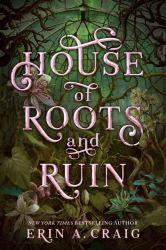
House of Roots and Ruin is an intriguing sequel to the popular novel House of Salt and Sorrow by Erin Craig. The previous novel primarily focused on the Thamus girls, with a particular emphasis on Annaleigh, as they delved into the mystery surrounding the death of their sister, Euliea. In contrast, the story in House of Roots and Ruin revolves around Verity, the youngest Thamus sibling.
The plot begins with Verity's journey to the mainland, where she visits Chantiule and Bloem. During her stay there, she receives a commission to paint a portrait of Alexander, the son of the wealthy Laurent family. However, as she spends more time in the family's mansion, she senses an underlying air of uncertainty and becomes curious about the family's enigmatic past.
As the narrative progresses, Verity uncovers several buried secrets that the family has been hiding, leading to betrayal and sparking chaos within the manor. She grapples with accepting her ability to see ghosts, which she had initially rejected. However, she eventually learns to harness her gift to uncover the Laurent family's secrets.
House of Roots and Ruin is an engrossing novel that captivates readers and keeps them on the edge of their seats. The author successfully weaves together a complex and suspenseful plot that explores themes of betrayal, loss, and family dynamics. The book is a must-read for anyone who enjoys House of Salt and Sorrows and those who are fans of the mystery and fantasy genres.
The book in question is an enthralling and captivating read that is a perfect choice for anyone who is just starting in the fantasy genre and wants to try out some mystery books. The plot of the book is structured in a way that keeps the reader on the edge of their seat as it advances with each chapter. The book is full of unexpected twists and turns, which adds to the overall excitement and thrill of the read.
One of the notable aspects of the book is how the story moves back and forth yet still manages to stay in line with how the story ends. This aspect of the book keeps the reader engaged and intrigued till the very end. The book is well-written and easy to follow, making it a perfect shallow swim for anyone new to the genre.
The book balances fantasy and mystery perfectly, making it a thrilling and exciting adventure for readers. The book's overall quality and the balance of its elements make it a perfect recommendation for anyone looking for a great read in the fantasy-mystery genre.
8th grade
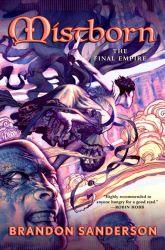
A high-stakes fantasy book about love and sacrifice, Mistborn is absolutely outstanding and a definite read for people who love fantasy. As with any excellent fantasy book, the worldbuilding is enthralling, and the magic system is incredibly distinctive yet easy to grasp. The characters are complex, relatable, and flawed, complemented by the third-person omniscient narration. With this cast of characters, the reader will be taken on multiple emotional rollercoasters before the book concludes. And yes, of course, there is romance layered on evenly throughout the narrative. While it does follow a typical plot, a revolution, or overthrow the corrupt leader, it is done uniquely, and there are twists, and there are turns. Honesty, I could not predict the ending and was left gaping on how intense the book got within the last quarter. As I said, I one hundred percent recommend Mistborn. It is an unforgettable read.
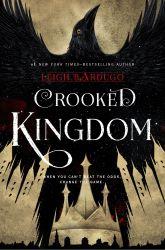
Crooked Kingdom is a sequel to Six of Crows, both of which are set in the Grishaverse. It is the story of how Kaz Brekker and his crew as they try to con Jan Van Eck out of his money before he builds an empire with the deadly substance, parem.
As with the last book, the characters are the standouts. Every member of the cast is fleshed out, and you can understand every decision they make. Jesper, Matthias, and Wylan are the standouts in this book. Each of them continue on their arcs in a natural way that leaves their characters feeling complete. Jesper realizes that many of his problems come from hiding his true self as a grisha. Matthias finally sees the beauty in the grisha. Wylan overcomes his father's influence and sees him for what he is.
The plot has constant twists and turns, but is still easy to follow. As the story progresses, the challenges the group faces continually grow more difficult. The characters have to change their plans multiple times to keep up with the growing influence of their adversaries. This story markets itself as a fun fantasy heist, and it more than succeeds in that. It might not say anything particularly meaningful, but it has a few nice messages sprinkled in there.
My main problem with this book is with Inej. Her arc was more or less completed in the last book, and this book doesn't have much for her to do. There's a brief crisis where she believes Kaz only keeps her around because she's useful, but that's resolved rather quickly. She has a rivalry with a character named Dunyasha, but nothing is done with that either. She beats Inej once, then loses the next time they fight. It doesn't make Inej grow or change. It just exists. It might not have bothered me so much if it wasn't built up as this incredible rivalry. I felt that the book wanted her to remain one of the main characters, but had to make up excuses for her to still be in the spotlight.
However, that one critique is rather small. Overall, Crooked Kingdom is a delightfully fun book. I would recommend it to any Grishaverse fans, fantasy fans, or heist fans.
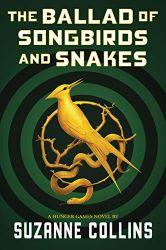
The Ballad of Songbirds and Snakes is a prequel story taking place before the events of the hunger games, and is about president Snow before he becomes president. This book was interesting because it shows Snow as a mentor to a tribute from district 12 during the tenth annual hunger games. You also hear a lot about Snow’s internal monologue which can get a little creepy because some of his actions actually make sense despite them being twisted. The book was a lot longer than any of the original hunger games books so it was a little slow which made it boring at times, but it was interesting to see Snow slowly morph into the twisted and feared villain he is later. The love story in the book was also strange because Snow would be the last person you would think of to show compassion and even Suzanne Collins can confirm this throughout his internal monologue. Overall, I think this is a great book to read if you enjoyed the hunger games series and there is a movie adaptation coming out this November which was one of my reasons for reading it.
Reviewer Grade: 8
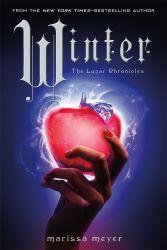
This book was the absolute perfect ending to the Lunar Chronicles! There was so much action and fairytale elements in the book that were all easy to follow, and fun to read! Marissa Meyer was a genius when she incorporated an adaptation of a sci-fi Snow White, while still be able to keep the story flowing and add growth to the characters. It is important to read the series in order, but Winter was by far my favorite in the series!
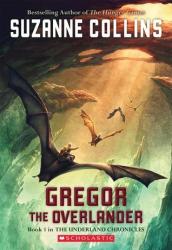
I read this book during middle school and recently reread the series. The book is about a boy named 'Gregor' Gregor falls into a laundry shoot with his sister and finds himself in a new world with a quest. He searches for his dad. He's learns to survive in this new environment picking up new skills and learning this new worlds rules.
I loved the idea of the 'Underland' a world with completely different creatures and how they interact with each other. I loved the story filled with giant animals like bats, rats, and cockroaches. How it goes into detail how Gregor and the people of the Underland get around in the dark. And how the lack of light affects their appearance. The book is very detailed and the well thought through.
The book is definitely worth a read. This book is a part of a 5 book series. Each book provides a new challenge for Gregor. And the last book just leaves you wanting more
Reviewer grade: 11

"The Sword Defiant" by Gareth Ryder-Hanrahan is the greatest exploration of what lies beyond the "happily ever after" that I have ever read. There are two main protagonists; Aelfric the Lammergeier and his sister, Olva. Aelfric, or Alf, is a member of the most famous adventuring party, called the Nine. They famously defeated a malevolent force of darkness 20 years before the events of "The Sword Defiant". Large elements are immediately reminiscent of a Dungeons and Dragons campaign. However, rather than focusing directly on battles, duels, and direct combat, Hanrahan instead uses these 20 years to explore how a world is altered after a massive war through Alf's perspective. My least favorite part of "The Sword Defiant" was when Olva was the primary focus. Olva's sections take an even larger step back from action, but the purpose of Olva is unclear even after the climax. I struggled to understand the purpose of Olva. She appeared to just be a thing that Alf needed to protect, or she appeared to be just a tool for the author to see the world from the view of a commoner. This leads to the best part of the book: the world-building. Every single detail about the environment, the populace, culture, class division, species division, species interaction, species history, magic, and more felt important to understand. Each of those elements were also explored, typically through Alf. The Nine have their own interesting backstories, and each member also represents an archetypal Dungeons and Dragons character. Too many beautiful interactions occur between members to present but even the smallest remarks are hitting on the previously mentioned elements of world building. There are the typical fantasy races like Dragons and Dwarves, but there are also the stranger ones like Vatlings and Witch Elves. When Gundan (a dwarf) talks about the Elves, it's always something negative. When anyone ever mentions Peir (the dead one who sacrificed himself 20 years ago), they always talk about his best characteristics. The ending will make that interesting, as well as the development of the secret villain in the end. All in all, this would have been the best fiction book I have read this year if it wasn't for the slog also known as Olva's sections.
Reviewer Grade: 11
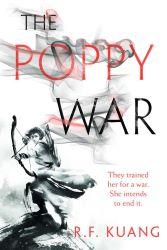
When I picked up The Poppy War by R. F. Kuang, I sought a good, possibly wonderful, fantasy book, as one would expect from a New York Times best-selling author. What I was not expecting was to be enlightened and disturbed to the same degree within its 544 pages. Now let me back up; The Poppy War is a historical and grimdark fantasy that draws its plot from mid-20th-century China, with the main conflict based on the Second Sino-Japanese War. The book provides insight into the brutality of war and its aftermath. While the book is based on the Second Sino-Japanese War, the author does a wonderful job constructing an immersive plot and charming characters taking creative liberties to make the book a story of its own. I would highly recommend this book.
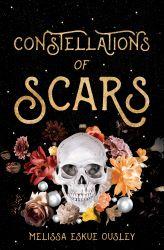
This is definitely an eventful book. "Constellations of Scars" follows Amelia Weaver. For unexplained reasons, she grows pearls on her skin every month. Her mother keeps her shut inside the house, restricting her freedom. One day she decides to escape and try her hand at the real world. She ends up working for a freak show, though they are unaware of her own oddity.
Let's start with the characters. Amelia herself is perfectly acceptable. She doesn't have any noteworthy character traits, or anything to help her stand out besides the whole pearl thing. However, her motivation is clearly defined and all of her choices make sense. Gabe is probably the best character in the book. His backstory is interesting, and his somewhat reclusive demeanor is off putting without being unlikeable. Unfortunately, most of his character development happens within ten pages. Peter is... interesting. I'll talk about him in the spoilers section.
The best part about this book is the writing. It keeps the reader engaged the whole way through. While the descriptions are detailed, the author does not dwell on them long enough to bore the reader. One interesting thing about this book is the chapter length. While there are long chapters, there are also chapters that only last a few pages. I found that this kept the story at a fast pace, further keeping me involved.
The plot is the main failing of the book. Spoilers from here on out. It starts off strong, setting up themes of isolation and hiding. Several conflicts were set up, most notably Amelia's mother and the possibility of the world finding out about her secret. However, all of these conflicts are suddenly solved halfway through the book. From that point on, it shifts to a thriller about Peter secretly being a serial killer. I'm not kidding. There are hints that Peter isn't as nice as he appears, so it doesn't come out of nowhere. However, it drastically shifts the course of the story, to the point where it feels like two separate stories.
Despite this criticism, this wasn't a bad book. I enjoyed myself while reading it. Furthermore, it's a quick read (perfect for car trips or bedtime). If you're looking for an engaging story with twists and turns, this is for you. If you're looking for a cohesive story with interesting themes, this book isn't for you.
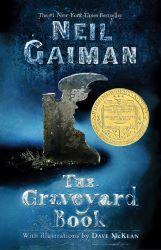
The Graveyard Book, written by Neil Gaiman, is a mystical, interesting book. In the book, a young boy is taken in and cared for by ghosts of a graveyard. The boy is kept in secret, and is named Bod, short for Nobody. The book follows Bod's adventures in growing up and continuing his life, in and out of the graveyard. I thought this was a great book, packed full of magic special characters. I would definitely recommend this book to anyone, but mostly a more mature audience, because there are some parts that I feel are harder to understand if you are younger, and at some parts the book is a little slow. But overall I think this was one of the best books I've read this year!
Reviewer Grade: 8
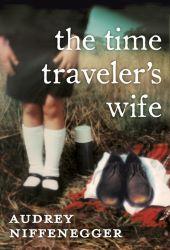
"The Time Traveler's Wife", written by Audrey Niffenegger, is the fictional account of Henry DeTamble, a man with a unique genetic condition that causes him to involuntarily time travel, and his wife Clare Abshire. The narrative follows their love story as they navigate the challenges posed by Henry's sporadic disappearances and unpredictable reappearances at various points in time. I really enjoyed how the plots all came together; while Clare aged normally, she would see Henry at different stages of his life. For example, when Henry time travels, he sees Clare when she is 13 and when he is 35. Another time Henry was 28 whilst Clare was 20. Clare's development was linear, while Henry's was sporadic. I would recommend this book to adults who enjoy a good love story. However, there is some adult content in the book so I would not recommend it for children or teenagers.
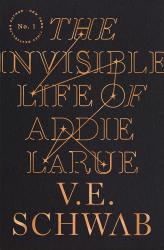
The Invisible Life of Addie LaRue is about a French girl who did not want to get married and prayed to a dangerous higher being made a deal. The deal makes Addie cursed to live until she gets tired of living and not being able to remember as she lives. Throughout the novel Addie is alone for 300 years her only company this higher being who enjoys to mock her. Finally after 300 years someone remembers her.
The novel is written in a bit of a slow pace, but it slowly builds up as it goes on. The novel switches between the past of characters lives and the present. The ending is a little surprising. The book is worth the read.
Reviewer Grade: 9
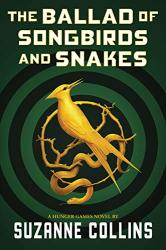
If you have read the Hunger Games series, then you know that President Snow is the main villain and set a iron grip on the Districts of Panem. I you haven't read the trilogy, then might I highly suggest you do.
This book takes place decades before the trilogy starts and we read through Coriolanus Snow's eyes before he becomes the president and monster of Panem. Coriolanus has already set himself up to be in a position of power even as a young adult, and after his city was besieged, and his parents died, the Snow name and fortune left in ruins. Coriolanus Snow has decided that he will never be the weaker side again. The Hunger Games were not a new event for Panem during the time yet they were never popular, now though Coriolanus and his class are each assigned a tribute to make the Games finally noticed. Coriolanus has been assigned the girl of District 12, perhaps the worst choice available, or so he thinks.
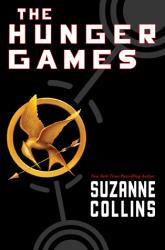
The "Hunger Games" by Suzanne Collins is a suspenseful novel about 16-year-old Katniss in the dystopian land of Panem. In this world, the 13 districts protested against the government. In punishment, they must provide two tributes (one boy and one girl) from each district. When Katniss's sister was chosen as tribute Katniss stepped up to protect her. Now she must fight to the death with the other 23 tributes for a chance to continue with her life.
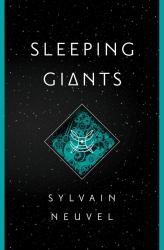
Sylvain Neuvel's "Sleeping Giants" is the first book in a series of three fantastic novels about alien technology and what it means to be human. This book was lent to me by my father, so I knew it had to be amazing. I was not wrong in that assumption. My favorite part about this book is likely the most divisive part: the format. This book is explained in an interview format, between each character and a mysterious interviewer that is developed further in the later installments of this series. At first, I wasn't sure if I would like how jarringly different this format is; sometimes it is noticeable when the author wanted to convey some important information, but the constant interview made the information difficult to show. It wasn't exclusively interviews; occasionally a mission log was used for variety's sake. My least favorite part of the book is actually what wasn't included in the book. It sounds picky, but I think that this book had room for more. The cliffhanger, while masterfully executed, came too soon. Not enough happened before the book ended, so I was left immediately scrambling to acquire the other 2 books in the series. The book, and especially the series as a whole, is absolutely surprising at nearly every step. Characters assumed narratively immortal die, and enemies turn into friends that save the world in the third book. Each character had interesting flaws and contrasting personalities, so each character introduced to us through the mysterious interviewer felt like someone you could meet walking down the street. All in all, this book is definitely one of the best books I have read this year.
Reviewer Grade: 10
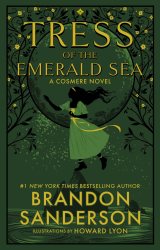
The book "Tress of the Emerald Sea" was a brilliant standalone book set in Brandon Sanderson's "cosmere" (his unique term referring to the general world where most of his books take place). I didn't actually choose to read this book; my uncle lent me this book because I love nearly all of Brandon Sanderson's books. After reading this magnificent book, I am very thankful for his generosity. I enjoyed the development of the protagonist, Tress, over the book the most. Tress stays kind throughout the entire book, but her bravery develops as she grows from a timid cup collector to something I don't want to spoil, but she gains a massive amount of bravery in the pursuit of kindness. I didn't enjoy the ease at which the final boss was dealt with, but the conclusion was relatively tidy and neat. This is the type of book where I constantly need to ask myself, "How did the author think of this"? Spore oceans that kill you but still float ships? Cup collectors creating chaos? Nothing was offensively predictable, and the little twist right at the end reminded my instantly of Studio Ghibli's Spirited Away's little twist at the end regarding the protagonist's parents. I won't say this has been the best book that I've read this year, but that is only because the year is still young and Brandon Sanderson's kickstarter had 3 other books in it.
Reviewer Grade: 10
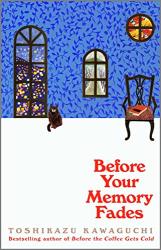
Before Your Memory Fades by Toshikazu Kawaguchi is one of three—four, as of November 2023—books that tells the tale of a cafe with a chair that allows visitors to travel back in time. Contrary to the simplistic concept it carries, there are rules one must follow:
1. One cannot change the present, regardless of their efforts.
2. Occupants must remain in their seat, otherwise they will return to the present.
3. Occupants must finish their coffee before it gets cold. If they do not, they become a ghost and are bound to that chair forever.
4. They can only meet people who have visited the cafe. With that being said, patrons need to travel to the day, hour, minute, and second their targeted person was in the cafe.
5. Patrons can only return to the past once.
6. Despite the first rule, one can give or receive gifts, and one can take photos.
Sorrow and the conflicting bet of regret is a spill all four of the patrons decide against drowning in. Clarity wiped their messes and ordeals clean through the reminiscent transparency of hospitality born from truth, unsaid words, or the driving words to live the rest of their life as a happy person, rather than a person grieving the nauseating reality they're set to survive in.
9th Grade
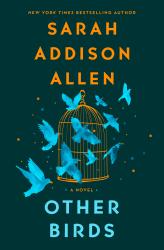
"Other Birds" is a slice of life story with mild paranormal elements. It does not have a high stakes plot, but rather focuses on the personal struggles of the characters. Overall it is a very refreshing and relaxing read. The paranormal element is not explored much, but it adds to the book's charm. The prose is lovely, especially regarding descriptions of food.
All of the characters are fairly interesting. Charlotte, Mac, and Lizbeth were my favorites. They all had interesting pasts and clear personalities. Zoey and Oliver were also interesting, but felt a little under developed. Lucy is only present for about a dozen pages. She's not so much of a character as she is a mystery, and she serves that role well.
The twists in this book are all fairly solid. I guessed one of them immediately, but it still felt impactful. I didn't guess one, but it didn't add anything to the story. Two of them were genuine surprises, and added depth to the story.
This book is not incredible, but it is thoroughly enjoyable and heartwarming. I would recommend it to lovers of character driven stories.
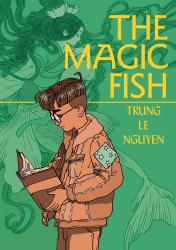
This graphic novel has a really interesting way of storytelling- it has multiple stories running simultaneously that add depth to one another. The author uses fairy tales, like the Magic Fish, to represent the actual characters in the main story. It follows a young boy who struggles to tell his mother he is gay and he experiences a crush on one of his close friends. It touches on some sensitive topics but ends really sweetly. Another bonus is the gorgeous artwork and use of color in the different storylines. Despite being a quick read, it was meaningful and a good story.
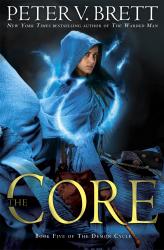
"The Core" by Peter V. Brett is the finale for The Demon Cycle, a great series of books about demons and religion. I originally began to read The Demon Cycle because it was recommended for fans of "The Lies of Locke Lamora", another fantastic book that I will likely review at a later time. My favorite part about The Core was absolutely the lengths that Peter Brett went to in order to ensure an emotional journey. Without spoiling anything, beloved characters have surprising and drastic events that grip you and force you to keep reading. It's hard to pinpoint an unenjoyable part, but I do wish that the ending had more that I could read; I was dissatisfied when there was no more for me to read and that some characters were not developed to the levels I wanted (e.g. Abban and Roger). A few criticisms are as follows; some characters feel intentionally undeveloped just for the sake of a more impactful climax. Arlen, for example, appeared to achieve near godhood across the last 4 books, but he struggles unnecessarily with things that he proved he had mastered earlier in the series. Regardless of all of this, I still believe that The Demon Cycle as a whole has been one of the greatest series I have read this year.
Reviewer Grade: 10
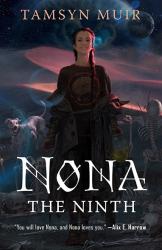
Nona the Ninth is the third book in the Locked Tomb series. It was an unprecedented addition, as the series was originally meant to be a trilogy that would end with Alecto the Ninth. And after reading this book, I couldn't imagine the series any other way. This book takes a step away from our principle protagonists and inter-planetary conflict to zoom in on Nona, a young woman who has technically only been alive for six months. She is a great teacher's aid, a fantastic dog watcher, and a caring friend. As her city crumbles around her and the secrets of her origin begin to come to light, Nona must keep trust in herself and the people she loves if she hopes to make it to her birthday.
I've seen a lot of reviews comparing this book to the first two in the series. In my opinion, there is no comparison to be made between any of them. The first is a thriller mystery in a nightmare castle with newfound friends. The second is a psychological horror story that occasionally becomes a soap opera. The third is slice of life, and the most heartbreaking of all three. I agree fully with the choice to make this a separate book, instead of trying to cram this into a climactic series ending. The series needed time to breathe from the revelations and consequences of the first two books, and to develop many of the wonderful side characters. On this note, the side characters in this book ruined me. They are constantly hilarious. They are perpetually heartbreaking. They have so much love for each other and it tears me apart. They are also fantastically developed, to the point where the thought of losing any of them almost stopped me from finishing the book. A large part of what made them special was seeing them through Nona's eyes, which was a fantastic combination of naively loving and strangely perceptive. Speaking of which, Nona's perspective was a special treat. Throughout the series, the author usually increases tension and intrigue by seriously limiting someone’s perspective. Previously this had been by outside parties hiding information or the unreliability of the narrator, but Nona being a mental six-month-old was a special treat. She attempts to relay everything with accuracy, but with limited experience and vocabulary the audience is forced to experience everything with fresh eyes to try to see it for what it is. Beyond all this, the story shined in all the usual departments for this series. The humor was exceptional, probably the funniest the series has been since the beginning of Gideon the Ninth. I particularly enjoyed the dream sequence narrations, as they were beautiful, insightful, and insanely funny. Sometimes I feel like Muir makes nearly every one of her characters funny so they can rip your heart out later with a little extra oomph. The worldbuilding continues to be a harrowing endeavor in the best way, as you have to take the time to figure it out for yourself with what little glimpses the book gives you. The only complaint I feel like someone could make about this book is that the pacing was pretty slow in the beginning to establish the ensemble cast, but I loved every minute of it so I can’t complain.
In conclusion, this book is another triumph for the Locked Tomb trilogy, and I can’t wait to see what comes next! I’d recommend this book to anyone who loves found family, slice of life stories, lots of explosions, zombie princes, and dogs with too many legs!
Reviewer Grade: 12
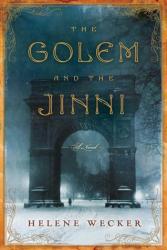
The book, "The Golem and the Jinni" was a fantastic book for several reasons. However, before I get to those reasons, I'd like to explain more about how I chose this book. I was in need of a book for entertainment. Typically, I like to investigate what books are similar to others that I have enjoyed before I visit the library, but this visit was more impromptu. A book was grabbed off the shelf, and I began to read it.
As for the book itself, I enjoyed the historical accuracy the most. Although I was not alive during the described time period, I enjoy the subtle nuance in architectural designs and consistent description between different characters (albeit with a different view for each character; Saleh obviously doesn't describe location unless it reflects faces, until... a spoiler). I enjoyed the inconclusive details the least; without spoiling too much, a lot of the information explained about a Golem's behavior simply never matters, or never comes up. When I first catalogued the details provided to me, I assumed that at least some of it would be relevant to the plot. The vast majority never was. The book was still surprising; the information dump near the climax was amazing for how much it concluded, even if I still complain about the information that was never resolved. The characters are relatable because they aren't relatable. Social situation are difficult for both the Golem and the Jinni, albeit for different reasons. This isn't one of the best books I've read this year, but I'll give it a 4/5 for amazing descriptions of the setting and lovable characters.
Reviewer Grade: 10
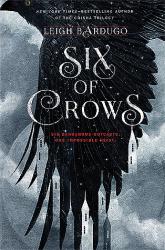
In light of the Netflix series getting its second season, I decided to pick up Six of Crows. In the end, I was pleasantly surprised.
This is a fantasy heist story, which is already a standout. Kaz Brekker and his gang are tasked to steal from the Ice Court, one of the most secure places in the world. If they succeed they’ll get unimaginable amounts of money. Each of his crew members have a different motivation as they head in to break out a prisoner.
The characters are all well developed. Kaz is the standout, with a nice mix of mastermind villain and sympathetic protagonist. Inej and Nina are the most sympathetic, each having somewhat altruistic motivations. Matthias is horrible, but his redemption arc is interesting. Jesper and Wylan are a bit flat at times, but are both fun enough to make me ignore that.
The plot is easy to follow, while still having a reasonable amount of twists and turns. The main problem I have comes up late in the story. I won’t spoil anything, but two characters are set up for a betrayal. When it’s time for them to follow through, they just don’t. I’m sure it gets explored more in the sequel, but it rings a bit hollow for now.
Overall, I’d definitely recommend this book. Especially if you like morally gray protagonists.
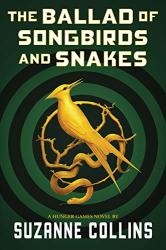
The Hunger Games: The Ballad of Songbirds and Snakes by Suzanne Collins is a masterful prequel to the wildly popular Hunger Games trilogy. Set 64 years before the events of the first book, The Ballad of Songbirds and Snakes explores the origins of the Hunger Games and the rise of the villainous President Snow. The main character, Coriolanus Snow, is a fascinating and nuanced character, with his motives and actions constantly shifting throughout the novel. His relationship with his fellow tribute, District 12's Lucy Gray Baird, is particularly compelling, with Collins exploring themes of loyalty, trust, and love in a way that is both nuanced and emotionally resonant. The plot of The Ballad of Songbirds and Snakes is both gripping and thought-provoking. Collins deftly weaves together political intrigue, personal drama, and action-packed set pieces to create a narrative that is both thrilling and emotionally engaging. The Hunger Games themselves are particularly well-done, with Collins using them as a vehicle to explore the darker side of human nature and the impact of power and privilege on individuals and society. Collins's descriptions of the Capitol and the districts are vivid and immersive, offering a richly detailed portrait of the world of Panem. Her use of foreshadowing and symbolism, such as the mockingjay, adds depth and meaning to the story, inviting readers to reflect on the deeper themes of the novel. This book was a stellar prequel to the Hunger Games trilogy that adds a lot of perspective and background to the original story. I would highly recommend this book to anyone who enjoyed the original novels and wishes to explore more of the Hunger Games world. Reviewer Grade: 11.
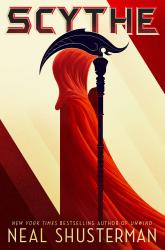
Scythe is the start of the Arc of a Scythe trilogy, set in the far future, humanity has overcome any and all problems. Except one, death, humans no longer keel over to illness, accidents, or war, but the Earth's population must be kept in check, thus humans must die. And so only the most humble and moral are put to the task. But of course humanity is fallible and the words humble and moral start to become rare words to describe the dealers of death. This book kept me constantly reading and wanting more (also had me checking my holds for the next in the trilogy), by far one of my best and most entertaining reads.
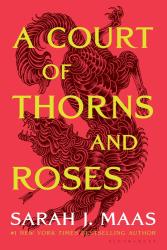
A Court of Thorns and Roses by Sarah J. Maas is a captivating novel that blends elements of fantasy, romance, and adventure into an enthralling narrative. The story follows Feyre, a young woman who is taken captive by a powerful faerie lord after she kills a member of his court. As she navigates the dangerous and magical world of the fae, Feyre discovers that nothing is as it seems, and that her captor may be more than just a cold and cruel faerie. The characters in A Court of Thorns and Roses are well-developed and have very distinct personalities, with Feyre serving as a relatable and engaging protagonist. Her relationships with the supporting characters, particularly with her captor Tamlin and his mysterious enemy Rhysand, are complex and multi-faceted, adding depth, drama, and intrigue to the story. This novel is extremely detailed and action packed, and despite the lengthiness of the book, it was a quick read for me because I could not bring myself to set the book down. The magical realm of the fae is full of wonder and danger, with intricate political struggles and ancient grudges threatening to tear the world apart all while Feyre experiences an unlikely slow-burn romance. Overall, A Court of Thorns and Roses is a beautifully written and engaging novel that is sure to appeal to fans of fantasy and romance alike. I very much enjoyed it and was eager to finish the rest of the series as soon as I closed the book.
Reviewer Grade: 11.
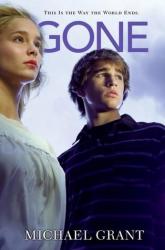
Gone, written by Michael Grant, is an action-packed dystopian novel that explores the struggle for survival in a world where all adults have vanished. The story takes place in a small California town, where everyone over the age of 15 has disappeared, leaving the children and teenagers to fend for themselves. The protagonist, Sam, is a relatable and sympathetic character who is thrust into a leadership role as he tries to keep the remaining kids safe and find out what has happened to their families. The world-building in Gone is impressive, with the small town and surrounding wilderness being vividly realized and full of danger. The supernatural elements of the story, such as the strange powers that some of the children possess, add an extra layer of intrigue and mystery to the plot that I very much enjoyed. Additionally, the novel explores a number of themes including moral and power struggles that the characters must face head on, and the shifting of the narration between several characters allows for some really good insight into how the characters' fight for survival has affected them each. Overall, Gone is a well-written and engaging novel that is sure to appeal to fans of dystopian and action-packed stories, and leaves off on a cliffhanger that encourages readers to read the remaining eight novels in the series. I personally enjoyed the plot and its many twists very much, and have read the rest of the series as a result. Reviewer Grade: 11.
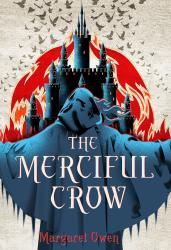
This book was unlike any other I've read before. I got it annotated by a friend as a Christmas present, and it was the best gift in the world. The first line alone shocked me, and made me want to keep reading. I love when a book starts off really interesting, and Margaret Owen nailed it. The characters are so funny, especially Jasimir, and Tavin is a wonderfully written brave and witty character too. I felt like I lived in the book, it was so vivid and the imagery was amazing. The gore was just enough to have an impact, but not be overwhelming. I would recommend this book in a heartbeat. Can't wait to read the sequel!!!
Reviewer grade: 11
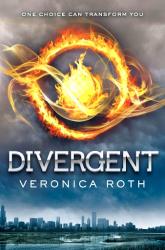
Divergent is a book that really drew me in as I was reading. The story starts from Beatrice Prior’s (also known as Tris) point of view. Within the world that she lives in, there are five factions. These factions being dauntless, candor, erudite, abnegation, and amity. Tris ends up choosing to go into the dauntless (the fearless) faction. Among being placed into the dauntless faction, Tris Prior meets Four. Four and Tris “hit it off” after seeing each other and the fall in love quickly. The two have different personalities which seems to click. The novel follows Beatrice and Four as they laugh, love, keep secrets, butt heads, and much much more.
I really like the variety in genres of this book. The book does have romance, humor, fantasy, but it also has action and mysterious elements to it. The short chapters make this book really good at keep the reader’s attention span. The scenes described in vivid detail allow you to feel like part of the story and envision it in your mind. This book is the first of three books. The three books were turned into movies and the first one being Divergent. If you’re looking for a read that is compelling enough to keep your attention span, have a little of every genre, and describes scenes in extreme detail, this book is for you!
Reviewer Grade: 8
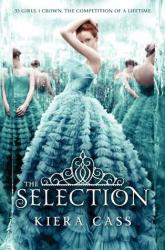
The Selection was a very fun book for me to read, because it was a quick read fantasy book. It incorporates all the elements a romance lover looks for in a book. It is a love triangle, enemies to lovers, and friends to lovers novel all in one. America is a very strong and independent character, but we see her become more open minded and willing to work with others instead of fighting them. It is cool to see her perspective on the life she wants change as she gets to know Maxon, but she never forgets the change she wants to make for the people of her past life. The book was not my all time favorite, because the plot can be a little more predictable at times, and some parts are slower. Although, it is definitely worth reading.